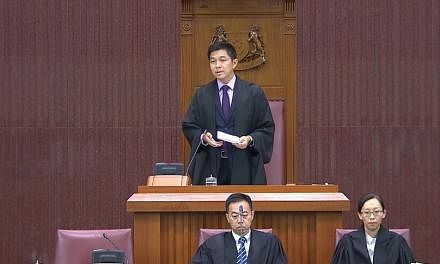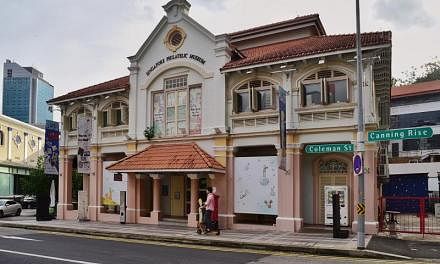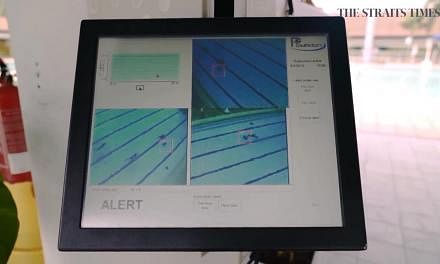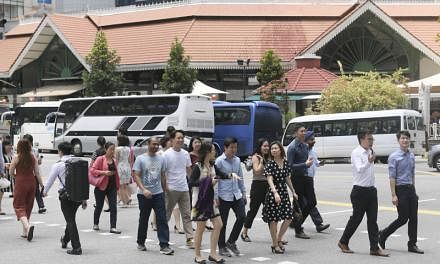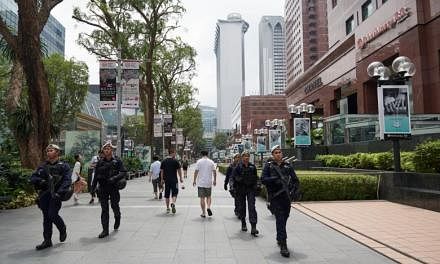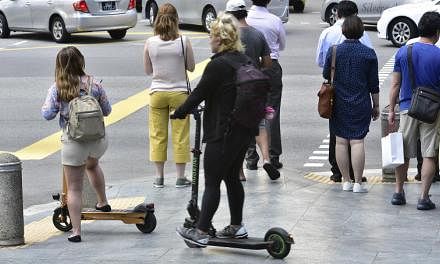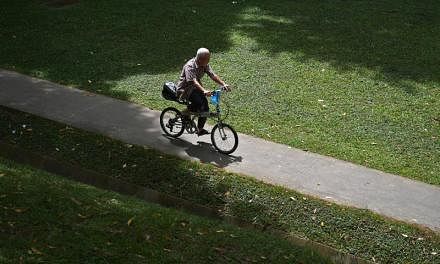SINGAPORE - A pipeline of local talent with market knowledge has to be built in Singapore to help companies identify growth opportunities and navigate challenges when expanding abroad, said Trade and Industry Minister Chan Chun Sing on Monday (March 4).
Steps are being taken, with the unveiling of the Global Ready Talent Programme in 2019, which helps students at institutes of higher learning to intern with Singapore companies overseas.
It will help expand the talent pool as "more than 50 per cent of Singapore enterprises find it difficult to internationalise because they lack the right talent for their overseas operations", Mr Chan said, replying to Mr Henry Kwek (Nee Soon GRC).
The talent programme has, apart from the overseas internships, a management associate programme for young professionals.
"We will focus on markets in South-east Asia, China and India," he told the House during the debate on the Ministry of Trade and Industry's budget. "Singapore enterprises can receive up to 70 per cent funding support for the allowance or salary of participants."
He also said that Enterprise Singapore will work with trade associations and chambers, as well as institutes of higher learning, to facilitate internship placements between companies and students.
"We will also continue to promote the exchange of ideas and talent with innovation hubs around the world," he said, referring to the Global Innovation Alliance (GIA), a network to promote entrepreneurship and innovation with a focus on technology that was announced in the 2017 Budget.
"Last year, on top of launching GIA in Bangkok, we also accelerated expansion plans, establishing GIA activities in France, Japan, and Germany. We will continue to expand the GIA network in 2019."
Such initiatives, which promote a flow of ideas and talent, are part of Singapore's non-physical nodes of connectivity, which will be increasingly important as the global economic landscape transforms, said Mr Chan.
Nominated MP Douglas Foo asked how the Government is helping companies to seize opportunities in Asean, as China's Belt and Road Initiative enhances integration and infrastructural links in the region.
Mr Chan said the China-Singapore Connectivity Initiative - New International Land-Sea Trade Corridor will facilitate trade flows between South-east Asia and western China through Singapore, cutting the time needed to transport goods between both regions from three weeks to one, and helping to lower business costs.
"Asean, with its rising middle class and rapid urbanisation, presents huge opportunities for Singapore companies," he added. "We will continue to facilitate our companies' foray overseas through our network of overseas centres, which supported over 100 projects in Asean last year."
The Government has also set up a "plug and play network" to help companies with their initial foray into overseas markets. This comprises 16 partners across nine global markets - including six from Asean - with Yangon coming on board this year.
Mr Liang Eng Hwa (Holland-Bukit Timah GRC), who is chairman of the Government Parliamentary Committee for Finance and Trade and Industry, said that uncertainties in the global economy, as well as technological advancements, mean Singapore needs to develop new niches on top of its existing success in air and sea transport, finance and banking, and other areas.
"We should continue to invest and upgrade our physical connectivity, such as the building (of Changi Airport's Terminal 5) and Tuas Port... But we know that many economies also have similar aspirations," Mr Liang added. "There is no stopping these countries in the region from building and replicating physical hubs such as ports, airports or new specific themed hubs."
He asked how Singapore can anchor itself as a key node in global trade flows, to which Mr Chan said the country needs to continue deepening physical connectivity while building modern, non-physical modes.
The minister added that the Transport Ministry will elaborate on Singapore's efforts on physical infrastructure.


